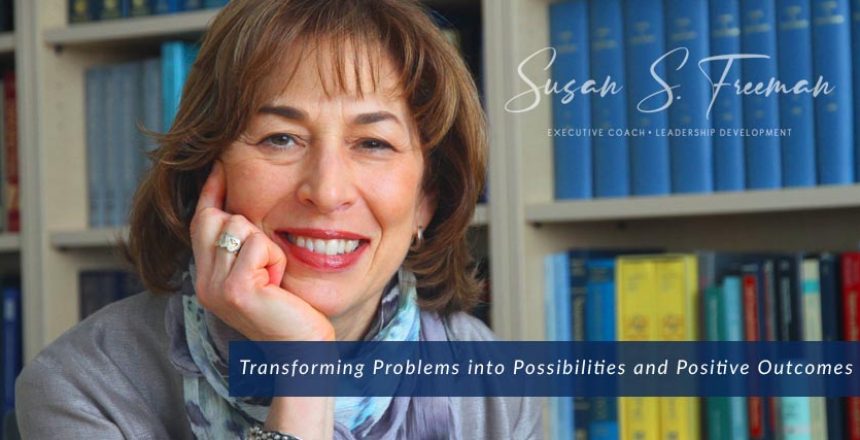It’s time to set your intentions for 2015. Here are 20 fabulous tips from some of the world’s best career experts to assist you in taking control of your career and making this year your best year ever.
- Engage in the “Power of Stopping”. According to Susan Freeman, a daily centering practice can reap you huge rewards in terms of calm and peacefulness. It can also improve your relationships with others.
- Be a “Reflective Leader”. According to Deborah Colman corporate environments today can be chaotic and require a level of interdependence with others. It’s important to know how to “navigate and respond vs react” to whatever situation comes up.
- Learn how to make the most of “Reciprocity”. Gary Ford says most people have a fear of rejection and while “everyone wants to be more persuasive”, “often we are only hinting” at what we really want.
- Begin the process of “Self-reflection”. Kim Ades says it’s important to “surface our beliefs” and to “look at our thinking”. She refers to this as “thought management” and is an advocate for daily journaling. Regular self-reflection can accelerate change.
- Recognize “Common Behavior Patterns”. According to Sylvia Lafair, there are “13 common behavior patterns we learned as kids” and like it or not, “we bring these behaviors to the workplace”. Recognizing these “behavior patterns” in yourself and in others, will “help you deal with office politics and conflict in the workplace”.
- “Move your Career Forward.” If this is the year you are looking for a new role or job, then Dana Manciagli recommends you “start with a goal, develop a plan and create a candidate packet”. Traditional resumes are simply not enough to get you the interview.
- Hone your “Perception Management”. Do you know what impression you are making on others? According to Judi Walsh, you “can measure your level of influence and develop a distinct foundation”. This “distinctness” will set you apart from others.
- “Manage Up”. According to Cecile Peterkin, “leaders don’t need a title”. “Managing up is about developing a solid relationship with your boss, keeping your boss informed and knowing your boss’ priorities and management style”.
- Complete your “LinkedIn Profile”. According to Melonie Dodaro, “one of the best ways to stand out is to complete your LinkedIn profile”. Your LinkedIn link will usually be the “first thing that pops up when someone googles your name”.
- Use the “Power of Your Voice”. Carla Kendall suggests you “speak from your gut not from your throat.” 38% of what you are communicating is communicated through your voice. Pay attention to your quality, tone, pitch, rate, and volume.
- Get good at “Self-Promotion”. According to Regina Barr, “Self-Promotion is not bragging”. It’s important to “get comfortable talking about yourself”. Barr says “find 2-5 contributions/success stories that you can describe in a meaningful way”.
- “Grow Up Your Gifts”. Shahmeen Sadiq says “at earlier career stages, we often use our gifts/strengths/talents in overcoming obstacles, managing threats and outperforming our peers to get ahead”. “At later stages, it’s important to “grow up” our gifts to create desired outcomes with ease, grace and elegance”.
- Achieve “Work-Life Satisfaction“. According to Nora Sudduth, it’s not about finding balance, it’s about achieving fulfillment. This “shifts responsibility from the employer to the employee to define your values and priorities and to find space for what you value most”.
- “Practice Safe Stress”. According to Lori King “healthy stress can make you more alert, focused and even productive”, while unhealthy stress can immobilize you, “inhibit your ability to relax and reduce performance”. Techniques such as deep breathing, meditation and yoga can help manage stress.
- Stop Avoiding “Difficult Conversations”. Sylvia Plester-Silk says “one of the keys to success in life and business is building trust. As a leader, having conversations about difficult topics is an opportunity to build trust through deeper understanding of another person.”
- Develop Your “Leadership Effectiveness”. According to David Town, a great place to “begin to understand your current leadership effectiveness is a personal assessment tool”. An assessment can increase your self-awareness and help close the gap between where you are currently and where you’d like to be as a leader.
- “Understand Who You Are.” Anne Dranitsaris says that while “past behavior is a good predictor of future behavior” you need to also “take into account the unique differences in personality and how the brain is hard-wired to function.”
- “Find a Job You Love“. Kathi Miller-Miller says if you’ve been fired, “skip the blame game”. Kathi says it’s important to “take care of yourself, avoid negative people” and recognize that you are not alone. This is a terrific “opportunity to find your passion”.
- “Don’t Lose Your Soul”. According to Sondra Sneed, “you are more than your job”. It’s important to “know your life’s purpose or your job won’t produce a career path”. “There is a part of you that is your job, but you are so much more than that”.
- “Invest in Yourself”. Linda Cattelan says there is no better time than the present to invest in yourself and in your career potential. “You can no longer rely on your employer to prepare you for your next role or promotion”. Consider hiring a professional coach to assist you in developing a career plan, hold you accountable or to support you on your career journey.
Whether you are at the start of your career, mid way through your career, or at the tail end of your career, vow to make this year your most successful year ever.
 If you are interested in hearing more from each and every one of the above career experts, join us for the 2015 Catapult Your Career Success Summit for free Jan 20th – Feb 2nd!
If you are interested in hearing more from each and every one of the above career experts, join us for the 2015 Catapult Your Career Success Summit for free Jan 20th – Feb 2nd!

